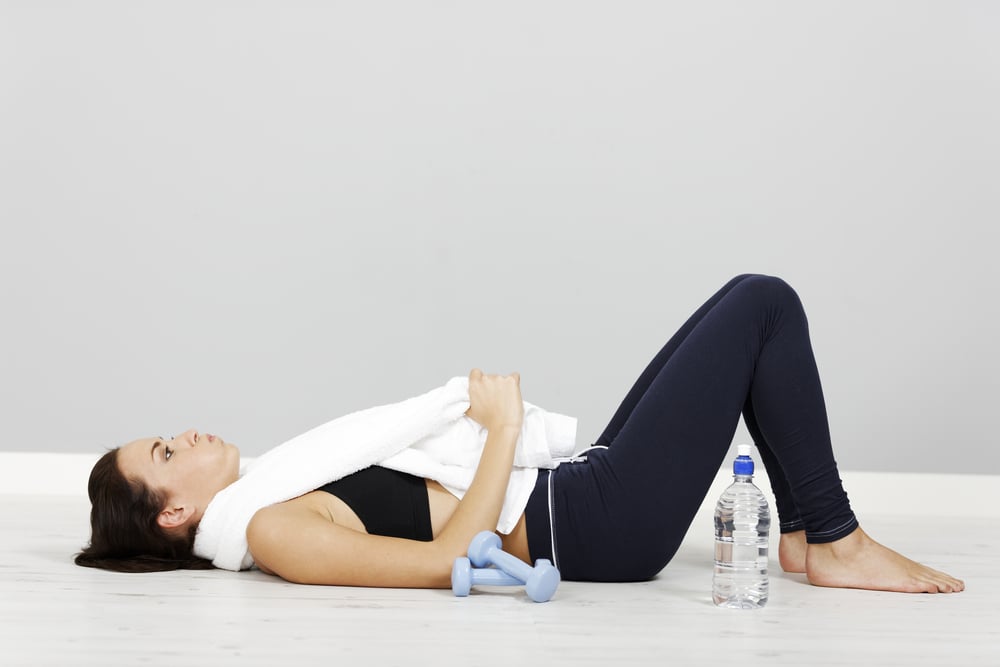Sometimes, less is more. This is a saying that is popularly used by minimalists and proponents of moderation. But, you know what? They are absolutely right, and this concept applies to all facets of life, including health and fitness.
You might find it hard to believe, but sometimes taking a complete week off exercising or as it commonly referred to in the fitness world, a deload week, can actually be more beneficial for your fitness goals than hammering yourself to the ground with intense workouts. That said, there’s a caveat in the sense that you’ll have to be training at an appropriate intensity beforehand to get the full benefits of a deload week.
When it comes to fitness and exercise, we’ll usually come across two types of people. The first group are individuals who are very eager and enthusiastic to train and will often end-up doing too much too often. On the other hand, we’ll find folks who despise working out and even the thought of going to the gym will fill them up with dread and anxiety. If you’re someone who falls into the former group, then read on as the tips discussed in this blog post will accelerate your recovery process and get you a step closer to your fitness goals.
What Is a Deload Week?
A deload week is a welcome “anti-stress” tool in the fitness industry. Some exercise professionals may disagree but, we believe that having scheduled rest is crucial to your health and fitness success.

During a deload week, you provide your body a much needed break from intense exercise, to facilitate recovery, fatigue management and “super-compensation”. Now, before you start searching for super-compensation on Google, here’s a brief explanation of what it is and how it helps accelerate training progress.
Super-compensation is a concept in sports science which suggests that if someone trains adequately and then follows up the training cycle with a successful recovery phase, then they will develop higher performance capacity. So, what this means is that, if you’re a runner who’s been training intensely for a few weeks and starting to feel burnt out, then taking a properly structured recovery week will improve your performance thereafter. There’s a good chance you’ll find that your speed, stamina and agility will all improve after the deload week, and this is all because your body adapted to the training stress and compensated with improved performance after adequate recovery.
Is A Deload Week Mandatory?
Taking a deload week is essential to prevent burnout if you're training hard and eating right. By the time you reach the end of your beginner gains, it's easy to fall into a trap where you have a plateau and are struggling to maintain progress. Deloads can be the “secret sauce” you need to push through such plateaus and continue improving.
But, are deloads necessary for everyone? Well, the short answer is no. And, the long answer is it depends on a variety of factors such as how hard you are training, how long you have been training for, your lifestyle choices, how you manage stress, your diet and sleeping habits and so much more.
On a more general note, if you're a hardcore trainee and aspire to reach the highest level of your sport, a scheduled deload week is going to be non-negotiable. But if you are a casual exercise enthusiast who barely pushes beyond your comfort zone, then there’s no need for deloading.

What Are Some Tale-Tale Signs That You Need a Deload Week?
Let’s be honest, if you’ve been ramping up your training intensity for a while, you’ll feel it, and your body will be begging for a deload. But if you are still not sure, here are symptoms of over-training that you need to look out for so that you can set up a recovery phase accordingly.
-
Getting weaker or decreased performance despite increased effort
-
Sore joints, muscles and overall fatigue
-
Feeling lazy and unmotivated to exercise
-
Poor sleep and loss of appetite

How To Properly Schedule A Deload Week?
Now that we’ve established the concept and benefits of deloading, let’s discuss how you can set up a deload week to reap the benefits, and continue making awesome progress.
In our opinion, if you are training hard enough and at a high-intensity, you should schedule a deload week every 4-6 weeks of your exercise program. And, during this week of rest, you can either train at a sub-maximal intensity, take a complete week off, or cut down your training frequency or workout volume in half. So for example, if you were training 5 days a week previously, during the deload week, you’d only train twice or three times a week at the most, or if you are doing a total of 20 sets of exercises per session in a normal training week, you'd do just 10 sets of those same exercise while deloading. In terms of nutrition, we'd recommend eating at maintenance calories or maybe even a small surplus to aid further in the recovery process.
Ultimately, a deload week is the ultimate tool for facilitating recovery. If done right, it can be especially effective for more advanced individuals looking to avoid overtraining injuries and general burnout, as well as for beginners who may be overly enthusiastic in their early efforts and need a period of adjustment to accommodate their new fitness routine.
Putting It Altogether
In the end, we have to realize that fatigue is an inevitable and essential part of any well-structured training program. But how you manage this accumulated fatigue can literally make or break your body.
Reading this article will hopefully have demonstrated that scheduled deload weeks are definitely worth considering. They can help you break through plateaus, reduce training-related stress, maximize performance, strength, power and endurance gains by helping your body recover a lot more effectively.
If you enjoyed this article, then be sure to subscribe to our blog. We post tons of articles on a regular basis covering all things health, well-being, fitness and more.